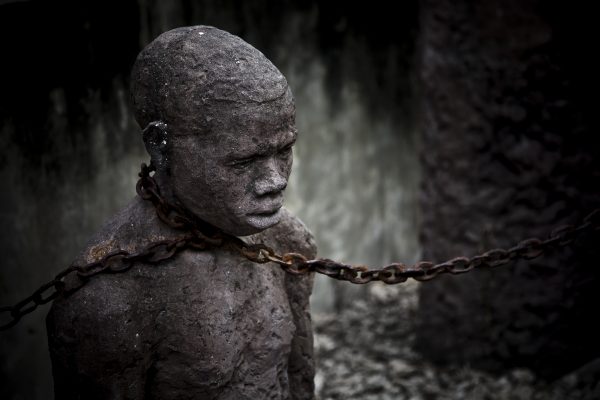Both the Prophet’s uncle Abu Talib and his wife Khadijah bint Khuwaylid played an important role in strengthening his resolve after revelation came to him in Makkah. Even though the both of them didn’t live long enough to see Islam flourish, they lent a helping hand towards building the foundation of the religion.
Both the Prophet’s uncle Abu Talib and his wife Khadijah bint Khuwaylid played an important role in strengthening his resolve after revelation came to him in Makkah. Even though the both of them didn’t live long enough to see Islam flourish, they lent a helping hand towards building the foundation of the religion.
Prophet Muhammad (PBUH) was the last messenger sent to mankind. His message was concentrated initially in Makkah, where he was born, and moved to Madinah, and eventually the rest of the world. Makkah was a pagan society that did believe in Allah, but still used idols as intermediaries. Their thinking was rigid, and their belief in these idols intense. Based on lineage, the people were also divided into tribes. People took pride in being from a pure tribe and having wealth and affluence only added to that. When the revelation came to the Prophet (PBUH) in this socio-political setting, it sought to shake everything pre-Islamic Makkah had known before.
Faced with the novel message of worshipping only one God, the majority of people of Makkah did not respond well. Their pagan religion under threat, they figured out multiple ways to put an end to the preaching of Prophet Muhammad (PBUH). In these trying times, he had two pillars of support that stood by him unconditionally, providing him the confidence and strength to carry forward the mission of Allah – his paternal uncle Abu Talib, and his first wife and Mother of the Believers Khadijah bint Khuwaylid (may Allah be pleased with her).
Some reports say that Abu Talib never embraced Islam, however the fact remains that he remained unwavering in his support of his beloved nephew. When the order for Salah was revealed and initially the Muslims began praying in secret, Abu Talib once saw Allah’s Messenger and his son Ali praying, and when they told him it was obligatory prayer, he told them to be consistent with it (Ibn Hisham 1/247, The Sealed Nectar p.123). Shortly after, the Prophet held a meeting to call the people closest to him to Islam where a lot of his uncles were also present.
After his speech, Abu Talib said, “I swear by Allah to protect him as long as I am alive” (Al-Kamil by Ibn Al-Athir 1/584,585, The Sealed Nectar p.126), in response to Abu Lahab asking him to stop the Prophet from preaching in Makkah. When he didn’t waver, the Quraysh employed various methods of persecution on the early believers. They couldn’t, however, get to the Prophet because he had the staunch support of his uncle.
When the Quraysh approached Abu Talib directly and asked him to give up his nephew to them, he only calmed them down. He sent for the Prophet and informed them of this, and he replied that he would never give the message up. Abu Talib said to him, “Go and preach what you please, for by Allah, I will never forsake you” (The Sealed Nectar p.138). It was this authority of his uncle that allowed the Prophet to continue spreading his message even in those dire circumstances.
When all else failed, the Quraysh went so far as to try to kill the Prophet. Sensing their plans and deviations, Abu Talib called his family and asked him to protect him. Both the believers and disbelievers among them agreed except for Abu Lahab who took the side of the idolaters (Ibn Hisham 1/269, The Sealed Nectar p.166). During the boycott, Abu Talib was so worried that he would ask the Prophet to sleep in his place and switch places later in the night in order to avoid an assassin (The Sealed Nectar, p.168).
Right after the boycott, he was eighty years of age and fell extremely sick, but he was still as keen on protecting his nephew on whom the atrocities by the Makkans didn’t cease. The Quraysh wanted to arrive at an agreement with the Prophet and they asked Abu Talib to convince him to give up half his religion and they’d give up half of theirs, but the Prophet refused on the basis of revelation. Abu Talib passed away in the tenth year of Prophethood, leaving his nephew vulnerable to social and political threats.
His wife Khadijah was a wealthy woman with an exemplary character. She was the Prophet’s safe haven in times of hardship and in times of ease, sharing with him all his most important moments. He would often visit Mount Hira before Prophethood for meditation and contemplation, and she would bring up food for him. When revelation first came to him, he was extremely scared at not having experienced anything like it before. The sight of Jibreel made his heart weak and when he ran home screaming “cover me up, cover me up!”, she was there for him.
She calmed him down by saying that Allah would never dishonour him because he always maintained ties of kinship, helped the poor, and was truthful. This shows her wisdom and maturity in times of tribulation. She then took him to her cousin Waraqah ibn Nawfal who confirmed the Prophethood. Khadijah was also the first person to believe in the message that Prophet Muhammad (PBUH) brought, making her the first woman to do so.
‘A’ishah narrates that the Messenger of Allah was sitting down with Khadijah. He then saw a person between the heaven and the earth and he told her of what he saw. She asked him to move closer. When he moved closer she asked her if he still saw the person and he answered in the affirmative. She then told him to put his head under her garment and asked him if he still saw him. He answered in the negative. She then told him, “This is an angel, had he been a devil he would not have been ashamed (of looking at you while you are under the cover of a woman’s garment).” (Women Around the Messenger p.44)
Khadijah was a very strong support system for the Prophet. She was a faithful and loyal wife who served her husband until her last days, and her love for him translated into her immediate belief in the message that he brought, which further gave him more confidence and strength to continue preaching the same. Of her, he says,
“She believed in me when people disbelieved, she consoled me with her wealth when people denied me their money, and Allah blessed me with children from her while I was denied children by other women.” (Women Around the Messenger, p.46)
Both the Prophet’s uncle Abu Talib and his wife Khadijah bint Khuwaylid played an important role in strengthening his resolve after revelation came to him in Makkah. Even though the both of them didn’t live long enough to see Islam flourish, they lent a helping hand towards building the foundation of the religion. Abu Talib offered him the best socio-political support, and Khadijah had his back emotionally and morally.
Bibliography
Muhammad ‘Ali Qutb (2008) Women Around the Messenger, International Islamic Publishing House.
Safiur-Rahman Al-Mubarakpuri (1976) The Sealed Nectar: Biography of the Noble Prophet, Darussalam.





